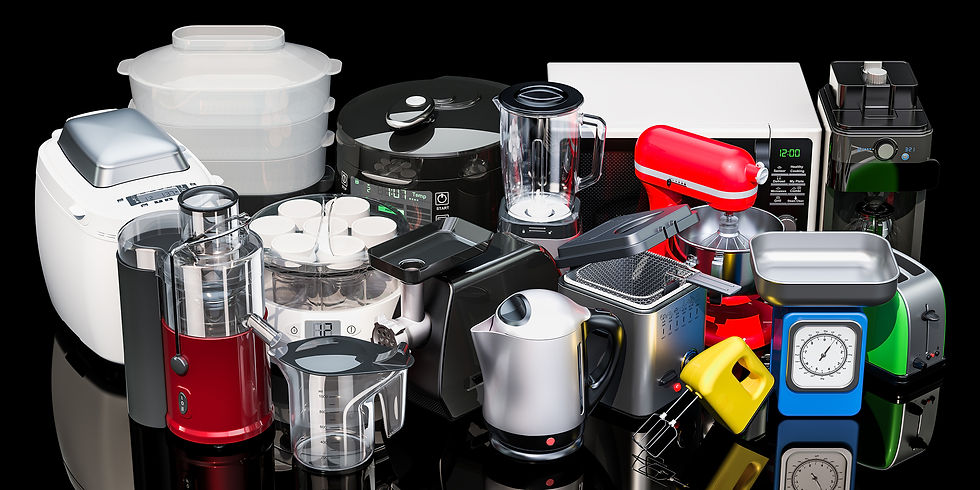Why Are My Electricity Bills So High?
- Sunsynk Marketing
- Aug 8, 2025
- 4 min read
And how Sunsynk can help you take back control with solar and battery storage.

If you’ve opened your electricity bill recently and wondered, “Why is this so high?” you’re not alone. Across the UK, home and business owners are facing soaring energy costs, even during months when usage has stayed around the same level.
The drivers behind rising energy bills
Contrary to popular belief, UK electricity prices aren’t only determined by how much power you use. Even if you cut back on consumption, your bill can stay high, and that’s largely because the wholesale price of electricity in the UK is closely tied to global gas markets. This is because the UK operates under a marginal pricing system, where the price paid for all electricity on the grid is set by the most expensive generator needed to meet demand. And most of the time, that’s a gas-fired power station. Even though the UK now generates over 50% of its electricity from low-carbon sources like wind and solar, gas plants still set the market price most of the time.
The UK also imports a significant portion of its gas supply, which means domestic electricity prices are vulnerable to international gas markets. This includes price spikes caused by geopolitical tensions or supply disruptions. So even if your electricity is technically “green,” you’re still paying a rate shaped by the global gas market.
On top of that, about a quarter of what you pay goes toward policy costs and levies (including VAT), renewable energy subsidies, and upgrades to the national grid. These investments are crucial for long-term sustainability, but they add to the short-term pain for consumers.

Many UK homes (particularly older buildings) also suffer from inefficiency and aren’t well insulated. Heat escapes through windows, roofs, and draughty doors, forcing electric heaters and boilers to work harder. Combined with the rising use of energy-hungry appliances, from powerful kettles and gaming consoles to electric vehicle chargers, the average household demand has crept up.
We also need to consider seasonal spikes. During cold, dark winter evenings, usage tends to surge, especially in homes where electric heating supplements central systems. Even cultural habits like the “TV pickup” effect, where millions of kettles switch on during a break in a major TV programme, can lead to huge spikes in national demand. These sudden surges have to be met by backup generators, which again drives up prices.

How solar and battery storage can help
This is where solar energy starts to make real sense. By generating your own electricity, you become less reliant on the national grid, and less exposed to the volatility of global gas markets.
In the UK, over one million homes already have solar panels installed, and that number is climbing fast. Rooftop solar accounts for a growing percentage of the country’s total solar capacity. Households could save hundreds a year by installing solar panels, more if they combine it with a battery storage system.
When your panels are producing power during the day, often more than your home is using in real time, a battery can store the excess. That means you don’t waste what you generate, and you can tap into it later, like in the evening when grid electricity is at its most expensive. For many homes and small businesses, this means a dramatic reduction in peak-time consumption and, consequently, lower bills.
For business owners, particularly those running offices, shops, or hospitality venues, the benefits can be even greater. Many of these businesses operate during daylight hours when solar production is at its peak. Installing solar can drastically reduce their daytime electricity costs and smooth out the impact of time-of-use tariffs. A well-designed solar and battery system can be scaled to match your working hours, helping to keep overheads under control in a tough economic climate.

What to know before getting started with solar
If you’re considering solar, start by understanding your electricity usage e.g. when and how you use energy, and which appliances are driving the most demand. From there, a qualified installer can help you design a system that fits your needs. Adding a battery storage system is also becoming more affordable, and it can make a huge difference. Instead of sending unused solar energy back to the grid, you can store it for later, during the evening peak when electricity is most expensive. This dramatically increases your self-consumption and gives you more independence from the grid.
High electricity bills are frustrating, and they’re just one of the symptoms of a system that’s still catching up with the clean energy switch. But you don’t have to wait!
By installing solar panels and battery storage, you can protect yourself from rising prices, reduce your carbon footprint, and take real control over how and when you use energy. Whether you’re managing a household or running a business, now is the time to consider solar not just as a green choice, but a smart financial decision.

Tired of high electricity bills? Sunsynk has the solution.
At Sunsynk, we specialise in smart solar inverters and battery storage systems that help homes and businesses cut energy bills and reduce reliance from the grid. Whether it's a first step into solar or an upgrade to an existing system, our technology is built for efficiency, reliability and long-term value.
Explore our solar and storage solutions at: Products | Sunsynk
Have a question? Our team here is to help. Contact us at: Sales@Sunsynk.com


Gx